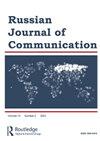苏联和后苏联时期学前教育项目中的情感发展
Q1 Social Sciences
引用次数: 3
摘要
情感在所有语言中都是一个敏感的主题,研究者试图跨语言和根据民族传统来理解和描述情感。人文科学中的“情感转向”以一种有趣的方式触及了教育领域,传统的苏联-俄罗斯方法被西方化的情商术语所取代。在将这些国际计划应用于俄罗斯心理语言现实时,学者们未能以一致的方式这样做。本研究回顾了俄罗斯过去和现在的情感教育方法,并提供了作者对俄语材料态度的应用实例。虽然一些心理学家用自然和合适的方式与孩子交谈,但其他人只是从英语中翻译,这往往看起来不适用。现代书店和网站上充斥着关于如何发展个人生活情感领域的建议和提示。这种普遍的情感培养方法可能会忽视当地语言特有的传统。本文章由计算机程序翻译,如有差异,请以英文原文为准。
Emotional development in the educational preschool programs of Soviet and Post-Soviet Times
ABSTRACT Emotions are a sensitive theme in all languages, and researchers seek to understand and describe them cross-linguistically and according to the national traditions. The ‘emotional turn’ in the human sciences has touched on the educational sphere in an interesting way, where the traditional Soviet-Russian approach was replaced by the westernized terms of emotional intelligence. While applying these international schemes to the Russian psycholinguistic reality, scholars failed to do so in a consistent way. This study reviews the former and current approaches to emotional education in Russia and provides examples of the application of the authors’ attitudes to Russian-language material. Although some psychologists speak to children in a natural and suitable way, others just translate from English, which often seems inapplicable. Modern bookshops and websites abound with advice and prompts on how to develop the emotional sphere of personal life. The universal approach to emotional upbringing may ignore local language-specific traditions.
求助全文
通过发布文献求助,成功后即可免费获取论文全文。
去求助
来源期刊

Russian Journal of Communication
Social Sciences-Political Science and International Relations
自引率
0.00%
发文量
0
期刊介绍:
Russian Journal of Communication (RJC) is an international peer-reviewed academic publication devoted to studies of communication in, with, and about Russia and Russian-speaking communities around the world. RJC welcomes both humanistic and social scientific scholarly approaches to communication, which is broadly construed to include mediated information as well as face-to-face interactions. RJC seeks papers and book reviews on topics including philosophy of communication, traditional and new media, film, literature, rhetoric, journalism, information-communication technologies, cultural practices, organizational and group dynamics, interpersonal communication, communication in instructional contexts, advertising, public relations, political campaigns, legal proceedings, environmental and health matters, and communication policy.
 求助内容:
求助内容: 应助结果提醒方式:
应助结果提醒方式:


